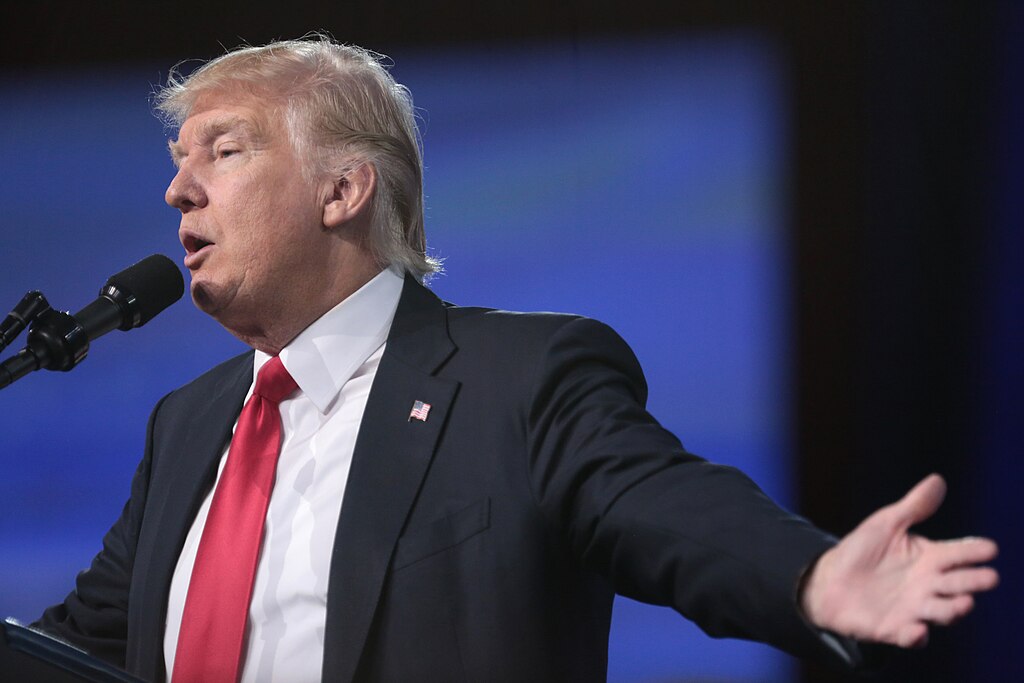In 2025, President Donald Trump is pursuing dramatic changes to U.S.-Mexico relations, prioritizing border security, trade negotiations, and combating drug trafficking. Building on his "America First" agenda, the administration has introduced policies aimed at tightening immigration controls and reshaping economic ties with Mexico.
While Trump’s allies argue the new approach restores American strength, critics warn it risks straining an already complex relationship. Mexican President Claudia Sheinbaum has responded cautiously, emphasizing Mexico’s commitment to maintaining diplomacy but vowing to protect her nation’s sovereignty.
Heightened Border Policies and Immigration Crackdowns
Central to Trump’s reshaped U.S.-Mexico strategy is a renewed focus on border enforcement. The administration has revived plans for mass deportations and enhanced border wall construction, emphasizing a zero-tolerance approach to illegal immigration. Local law enforcement and federal agencies have been tasked with implementing these policies under tighter oversight.
Additionally, Trump has introduced a new tariff scheme targeting Mexican goods, threatening economic repercussions if drug trafficking and migration flows are not addressed. The proposed 25% tariff on imports has sparked widespread criticism, with economists predicting rising costs for American consumers.
Mexican officials, including Sheinbaum, have called the tariffs “punitive” and warned of retaliatory measures. Sheinbaum stated earlier this month that while her government seeks cooperation, Mexico would not “bow to coercion.”
Economic Fallout and Diplomatic Concerns
Economists and business leaders are voicing concerns over the potential fallout from Trump’s policies. Mexico, the United States’ largest trading partner in 2023, accounts for nearly $800 billion in goods and services exchanged annually. Key industries, including automotive manufacturing, agriculture, and electronics, rely on seamless cross-border collaboration.
In response, Mexican officials are exploring diversifying trade partnerships, potentially strengthening ties with Canada, China, and other nations. Diplomats on both sides warn that escalating tensions could destabilize the region’s economic growth and security.
Social media users have fiercely debated Trump’s approach:
- @BorderWatch2025: “Finally, a leader holding Mexico accountable. These policies will protect our borders and jobs. #AmericaFirst”
- @GlobalEconomyGuru: “Trump’s tariffs are reckless. Alienating Mexico will backfire and hurt American families at the checkout line.”
- @MexicoMatters: “Sheinbaum is right—Mexico deserves respect. We won’t be bullied by threats and economic warfare.”
- @PatriotPolicyFan: “Immigration reform is long overdue. Trump’s leadership on Mexico sends the message we needed all along.”
- @TradeAnalystPro: “Severing ties with Mexico jeopardizes decades of progress. Short-term gains aren’t worth long-term instability.”
- @LatAmObserver: “This is the most strained U.S.-Mexico relationship in decades. Diplomacy is the only way forward.”
Future of U.S.-Mexico Relations
As Trump’s administration implements its plans, the long-term implications for U.S.-Mexico relations remain uncertain. While the president’s supporters celebrate his assertive leadership, critics question whether his policies will cause more harm than good.
Observers argue that the success of Trump’s strategy depends on balancing security concerns with economic stability. Mexico’s government continues to engage diplomatically, seeking to prevent further escalation while defending its interests.
The world will closely watch how both nations navigate this delicate balancing act. Whether Trump's reshaped U.S.-Mexico relationship strengthens the region or ignites further tensions remains to be seen.



 Israel Launches Fresh Strikes on Iran After Death of Supreme Leader Ayatollah Khamenei
Israel Launches Fresh Strikes on Iran After Death of Supreme Leader Ayatollah Khamenei  Russia Signals Openness to U.S. Security Guarantees for Ukraine at Geneva Peace Talks
Russia Signals Openness to U.S. Security Guarantees for Ukraine at Geneva Peace Talks  Iran Detains U.S. Citizens Amid Escalating Conflict With the United States and Israel
Iran Detains U.S. Citizens Amid Escalating Conflict With the United States and Israel  Trump Says U.S. Attacks on Iran Will Continue, Warns of More American Casualties
Trump Says U.S. Attacks on Iran Will Continue, Warns of More American Casualties  Zelenskiy Urges Change in Iran After U.S. and Israeli Strikes, Cites Drone Support for Russia
Zelenskiy Urges Change in Iran After U.S. and Israeli Strikes, Cites Drone Support for Russia  Argentina Tax Reform 2026: President Javier Milei Pushes Lower Taxes and Structural Changes
Argentina Tax Reform 2026: President Javier Milei Pushes Lower Taxes and Structural Changes  Israel Strikes Hezbollah Targets in Lebanon After Missile and Drone Attacks
Israel Strikes Hezbollah Targets in Lebanon After Missile and Drone Attacks  Suspected Drone Strike Hits RAF Akrotiri Base in Cyprus, Causing Limited Damage
Suspected Drone Strike Hits RAF Akrotiri Base in Cyprus, Causing Limited Damage  Rubio Says U.S. Would Not Target School After Deadly Iran Strike Reports
Rubio Says U.S. Would Not Target School After Deadly Iran Strike Reports  Melania Trump Chairs Historic U.N. Security Council Meeting on Children Amid Iran Conflict
Melania Trump Chairs Historic U.N. Security Council Meeting on Children Amid Iran Conflict  Why did Iran bomb Dubai? A Middle East expert explains the regional alliances at play
Why did Iran bomb Dubai? A Middle East expert explains the regional alliances at play  Supreme Court Backs GOP Lawmaker in New York Redistricting Fight Ahead of Midterms
Supreme Court Backs GOP Lawmaker in New York Redistricting Fight Ahead of Midterms  U.S. Deploys Tomahawks, B-2 Bombers, F-35 Jets and AI Tools in Operation Epic Fury Against Iran
U.S. Deploys Tomahawks, B-2 Bombers, F-35 Jets and AI Tools in Operation Epic Fury Against Iran  Trump Says U.S. Combat Operations in Iran Will Continue Until Objectives Are Met
Trump Says U.S. Combat Operations in Iran Will Continue Until Objectives Are Met  Pentagon Downplays ‘Endless War’ Fears After U.S. Strikes on Iran Escalate Conflict
Pentagon Downplays ‘Endless War’ Fears After U.S. Strikes on Iran Escalate Conflict  Does international law still matter? The strike on the girls’ school in Iran shows why we need it
Does international law still matter? The strike on the girls’ school in Iran shows why we need it  Trump Launches Operation Epic Fury: U.S. Strikes on Iran Mark High-Risk Shift in Middle East
Trump Launches Operation Epic Fury: U.S. Strikes on Iran Mark High-Risk Shift in Middle East 





























